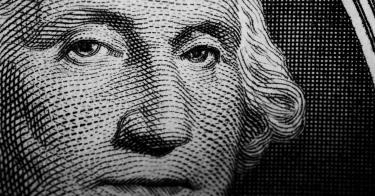More than half of Americans think the nation is already in recession, and for good reason. Countless families have had their finances wrecked over the last three years as they fell deeply into debt and are now trapped there with punishingly high interest rates. Worse, an increasing number of indicators say the recession has arrived in the broader economy.
Typically, the economy grows as population and productivity increase, expanding total production, income and consumption. When that growth stagnates and reverses into contraction, we call it a recession. Production declines, and people have a lower quality of life.
The most common measure for growth or contraction in the economy is gross domestic product (GDP), which estimates total spending. It’s imperfect, like any estimate, but those imperfections are becoming highly problematic today.
The federal government borrows trillions of dollars annually and spends every penny, which increases GDP because government purchases are included in the calculation. Furthermore, the government does not need to spend money directly. When welfare is distributed and people spend that money, it’s counted as consumer spending and increases GDP.
Thus, trillions of dollars that appear to be economic growth are just borrowing from the future—a debt that will eventually have to be repaid with taxes or inflation. Both will kill growth.
Consumers are in the same boat. Families have depleted their savings and gone deeply into debt to meet today’s stratospheric cost of living. Credit card debt alone is a record $1.14 trillion. Total household debt has ballooned to an eye-watering $17.8 trillion.
However, the debt charade is ending, and the façade of economic growth will come down soon after that. The latest consumer credit data shows that growth for things like credit cards has begun collapsing at the fastest rate since the COVID recession.
It’s unclear whether this is due primarily to people being unwilling to go deeper into debt or because lenders are leery about lending more, but the implication is clear: consumer spending—about two-thirds to three-quarters of the economy—is about to hit a wall.
In addition to record high prices, people are now deeply in debt and facing high interest rates. American families are paying more than $300 billion in credit card interest annually for the first time. People are forced to cut back and reduce their standard of living as their debts come due.
How we got here is a lesson in failed public policy and disingenuous marketing. Left-leaning politicians promised the American people an economic panacea if only the government could spend trillions of dollars we didn’t have. The icing on the cake was that there’d be no downside to all that deficit spending.
If it sounds too good to be true, it is. Like Pinocchio being lured to Pleasure Island with promises of consequence-free fun and libations, the American consumer was assured of good times ahead. Instead, the boys on Pleasure Island were hauled off as enslaved donkeys, and American families are now slaves to debt—their own and the federal government’s.
In June, interest on the federal debt was equal to 76 percent of personal income taxes paid that month. It now costs about $1.2 trillion annually just to service the debt without spending a dime toward principal.
The bill is coming due for years’ worth of profligate spending, and the price is steep. As businesses report declining demand and plummeting orders, and as hiring slows, it becomes increasingly clear that the party is over. The recession may have already begun.
This piece originally appeared in NH Journal




